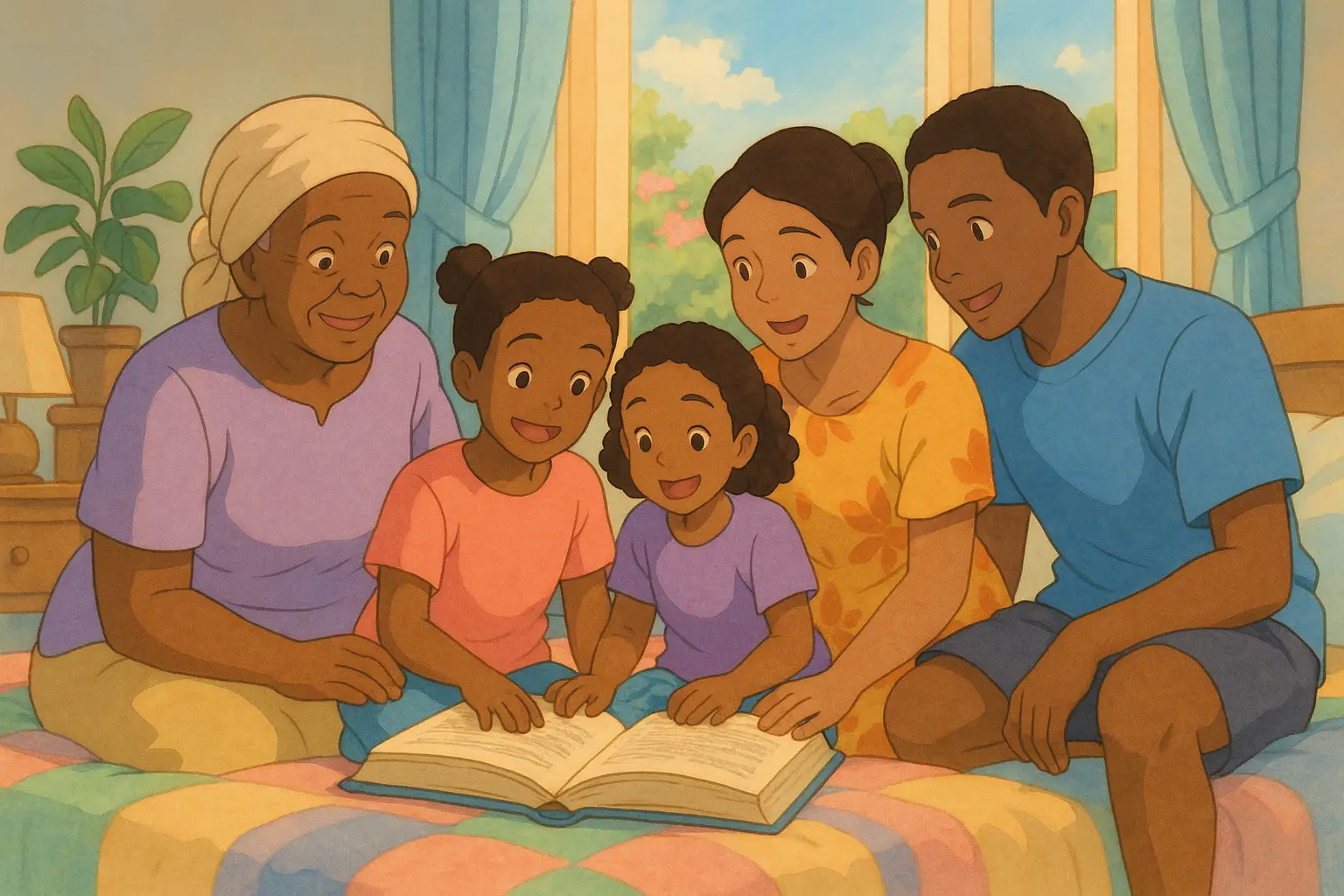By Lionel Kubwimana
••8 min read
Simple ways to host bilingual sleepovers that help your kids stay connected to your home language while having fun with friends. Easy tips for African diaspora parents.

Do you worry your kids are losing touch with your home language? You're not alone. Many African parents in America face this challenge every day.
Picture this: Your child comes home speaking perfect English but struggles to have a full conversation with grandma in your native language. It breaks your heart a little, doesn't it?
Here's some good news. You can help your kids stay connected to their roots while having tons of fun. The secret? Bilingual sleepovers that feel more like playdates than language lessons.
Children pick up languages naturally when they're relaxed and enjoying themselves. During sleepovers, they're not thinking about "learning" - they're just playing with friends.
When kids hear your home language during fun activities, their brains soak it up without stress. No pressure, no tests, just good times.
Your house can become a special place where different cultures meet and mix. Kids who might only know a few words in your language will leave with new appreciation for it.
They'll hear the rhythm and music of your language. They'll taste your food and hear your stories. These experiences stick with them forever.
These sleepovers help kids make friends from different backgrounds. Your child learns that being bilingual is actually pretty cool, not something to hide.
Friends become curious about your culture instead of seeing it as "different" or "weird." They might even ask their parents if they can learn your language too.
You don't need to redecorate your whole house. Just set up one corner with:
This corner becomes the "language hub" where kids naturally gravitate toward bilingual activities.
Put sticky notes on common items with words in both languages:
Kids love reading these labels and comparing the words. It becomes a game without you having to do anything.
Keep these handy:
Having these ready makes bilingual activities feel natural, not forced.
Kids love cooking, and it's perfect for language practice. Try this:
While making Nigerian jollof rice, kids learn words like "rice," "tomatoes," and "spices" in your language. They're having fun, and the language sticks because they're using their hands and taste buds too.
This works amazingly well:
Don't worry if they make mistakes. The goal is confidence, not perfection.
Turn your house into a game:
Kids get excited about understanding your language because it helps them win the game.
Try these ideas:
These activities connect hands, hearts, and language learning.
Music makes everything better:
Kids remember words from songs much better than from textbooks.
Let kids explore different cultures:
This makes your culture feel special and exciting, not old-fashioned.
Pick age-appropriate movies:
Movies make language feel alive and connected to real life.
Before the sleepover, chat with other parents:
Most parents appreciate when you help their kids learn about other cultures.
When kids feel left out:
Remember: confusion is normal. Kids figure things out faster than adults do.
Try this approach:
This makes everyone feel important and included.
Don't let it be a one-time thing:
Regular exposure helps languages stick better than intensive one-time events.
Build your community:
Your kids will see that lots of families value multiple languages.
Keep the connection alive:
These follow-ups reinforce that bilingual friendships are special and worth maintaining.
Research shows bilingual kids are better at:
Your child's brain literally gets stronger when they use multiple languages.
Bilingual children often:
Teachers notice these kids are often great learners.
Kids who stay connected to their home language:
This confidence helps them succeed in all areas of life.
These sleepovers help kids:
The friends your child makes through these experiences often become lifelong connections.
This is so common. Try this:
Peer influence often works better than parent pressure.
Most parents actually love this idea:
You'll be surprised how supportive most families are.
Keep it simple:
Small touches make big differences.
That's totally okay:
Your effort matters more than your expertise.
Ready to try this? Here's your simple first step:
Remember: the goal is to plant seeds of curiosity and connection. You're not running a language school - you're creating happy memories.
Every bilingual sleepover is a small investment in your child's future. You're giving them:
Most importantly, you're showing them that your family's language and culture are treasures worth sharing, not secrets to hide.
Start small. Stay consistent. Celebrate progress. Your kids will thank you when they're older, and their children will benefit from the foundation you're building now.
The next time your child has friends over, try adding just one bilingual element. You might be amazed at how eager kids are to learn about your culture when it's presented with love, fun, and friendship.
Your home can become a bridge between worlds - helping your kids stay rooted in their heritage while flourishing in their new country. And it all starts with one sleepover, one friend, and one parent brave enough to share their language with love.